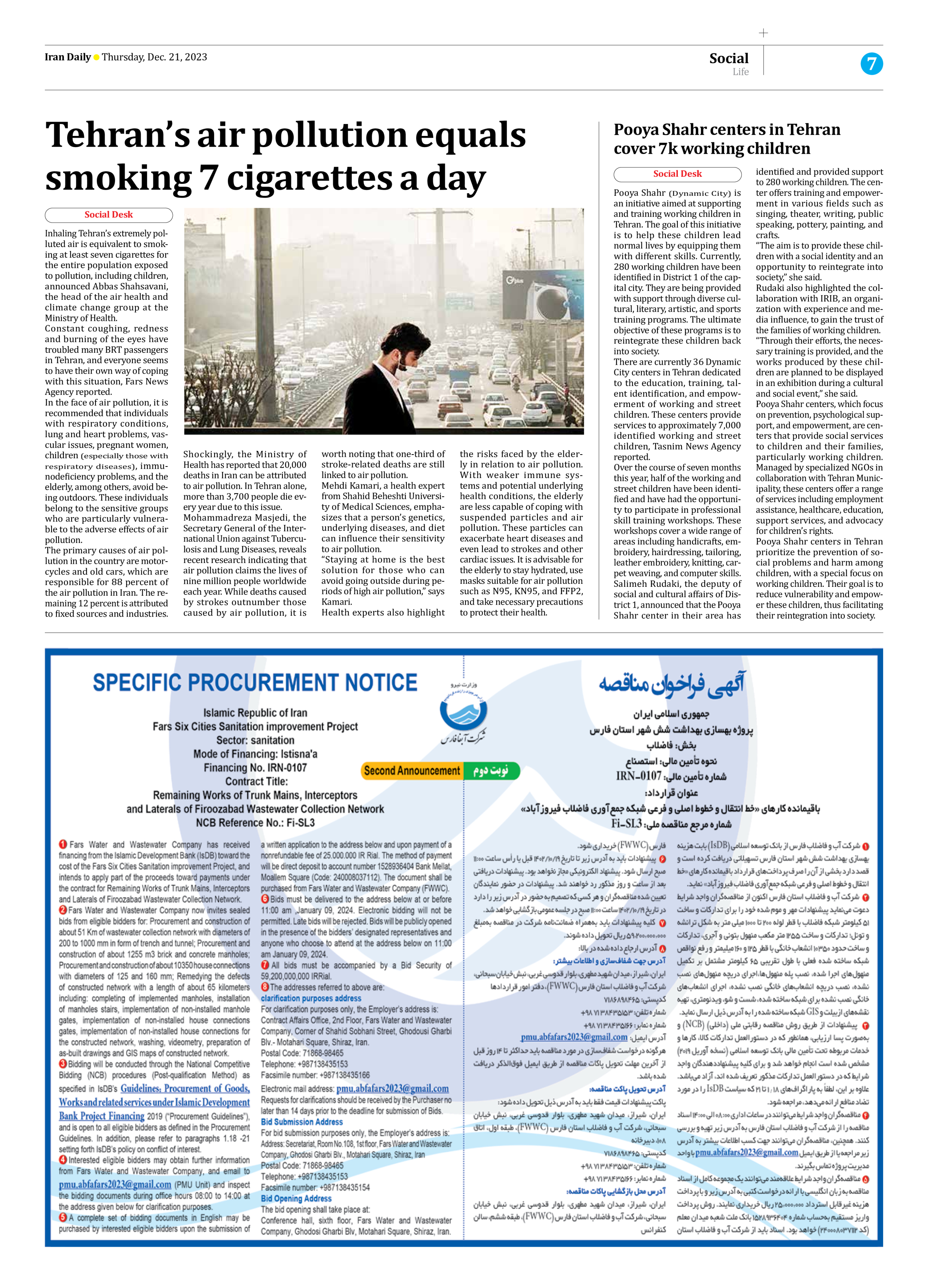
Tehran’s air pollution equals smoking 7 cigarettes a day
Social Desk
Inhaling Tehran’s extremely polluted air is equivalent to smoking at least seven cigarettes for the entire population exposed to pollution, including children, announced Abbas Shahsavani, the head of the air health and climate change group at the Ministry of Health.
Constant coughing, redness and burning of the eyes have troubled many BRT passengers in Tehran, and everyone seems to have their own way of coping with this situation, Fars News Agency reported.
In the face of air pollution, it is recommended that individuals with respiratory conditions, lung and heart problems, vascular issues, pregnant women, children (especially those with respiratory diseases), immunodeficiency problems, and the elderly, among others, avoid being outdoors. These individuals belong to the sensitive groups who are particularly vulnerable to the adverse effects of air pollution.
The primary causes of air pollution in the country are motorcycles and old cars, which are responsible for 88 percent of the air pollution in Iran. The remaining 12 percent is attributed to fixed sources and industries. Shockingly, the Ministry of Health has reported that 20,000 deaths in Iran can be attributed to air pollution. In Tehran alone, more than 3,700 people die every year due to this issue.
Mohammadreza Masjedi, the Secretary General of the International Union against Tuberculosis and Lung Diseases, reveals recent research indicating that air pollution claims the lives of nine million people worldwide each year. While deaths caused by strokes outnumber those caused by air pollution, it is worth noting that one-third of stroke-related deaths are still linked to air pollution.
Mehdi Kamari, a health expert from Shahid Beheshti University of Medical Sciences, emphasizes that a person’s genetics, underlying diseases, and diet can influence their sensitivity to air pollution.
“Staying at home is the best solution for those who can avoid going outside during periods of high air pollution,” says Kamari.
Health experts also highlight the risks faced by the elderly in relation to air pollution. With weaker immune systems and potential underlying health conditions, the elderly are less capable of coping with suspended particles and air pollution. These particles can exacerbate heart diseases and even lead to strokes and other cardiac issues. It is advisable for the elderly to stay hydrated, use masks suitable for air pollution such as N95, KN95, and FFP2, and take necessary precautions to protect their health.







